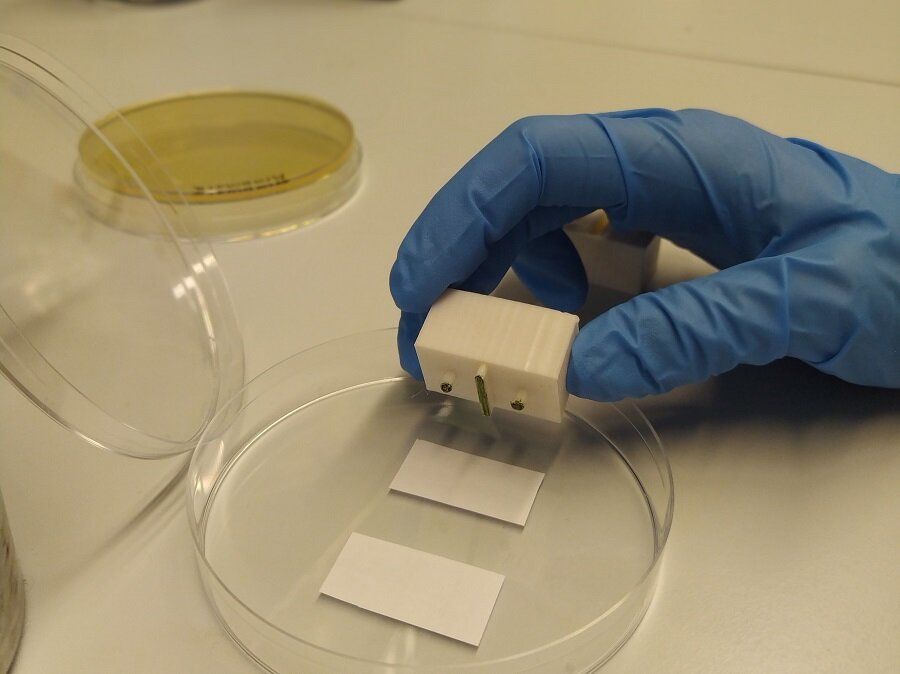The Research Group on Synthetic Biology for Biomedical Applications at Pompeu Fabra University in Barcelona, Spain, has designed a cellular device capable of computing by printing cells on paper. For the first time, they have developed a living device that could be used outside the laboratory without a specialist, and it could be produced on an industrial scale at low cost. The study is published in Nature Communications and was carried out by Sira Mogas-Díez, Eva Gonzalez-Flo and Javier Macía.
We currently have many electronic devices available to us such as computers and tablets whose computing power is highly efficient. But, despite their power, they are very limited devices for detecting biological markers, such as those that indicate the presence of a disease. For this reason, a few years ago ‘biological computers’ began to be developed—in other words, living cellular devices that can detect multiple markers and generate complex responses. In them, the researchers leverage biological receptors that allow detecting exogenous signals and, by means of synthetic biology, modify them to emit a response in accordance with the information they detect.
So far, cellular devices have been developed that must operate in the laboratory, for a limited time, under specific conditions, and must be handled by a specialist in molecular biology. Now, a team of researchers from Pompeu Fabra University has developed new technology to ‘print’ cellular devices on paper that can be used outside the laboratory.










Comments are closed.